

A Safer, Stronger Nashville

Trey
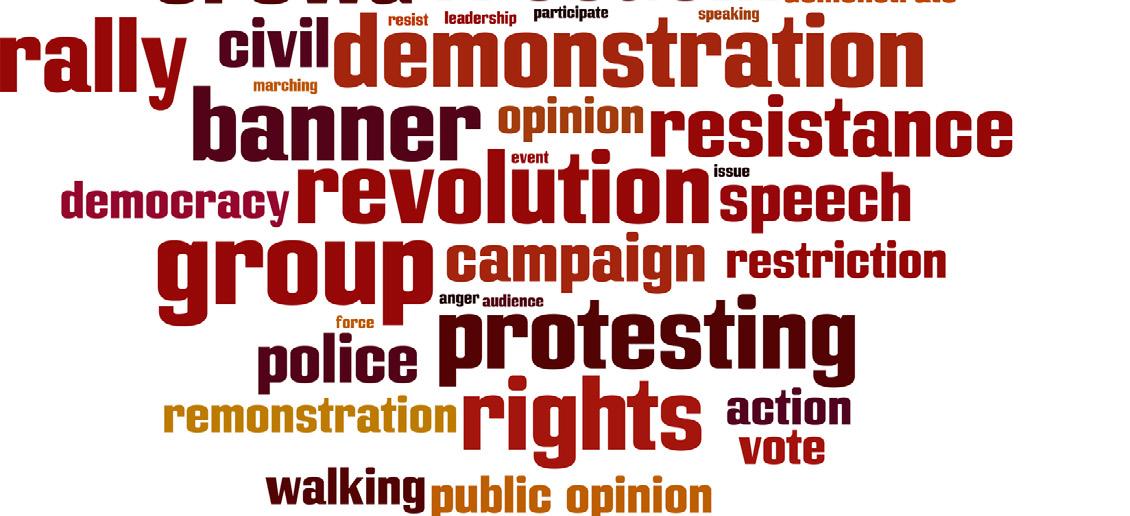
Jenny
Kristin
LAURA BAKER, Publisher
WILLIAM T. RAMSEY, Editor-in-Chief
CAROLINE E. SAPP, Managing Editor
LAUREN POOLE, Managing Editor
JILL PRESLEY, Layout/Design/Production
EDITORIAL COMMITTEE
RAMONA DESALVO
TIM ISHII
KELLY FREY
SUMMER MELTON
ROB MARTIN
BRUCE PHILLIPS
BART PICKETT
BRANDON SMITH
KRISTIN THOMAS
JONATHAN WARDLE
CRAIG WEBB
ELEANOR WETZEL
NASHVILLE BAR JOURNAL (ISSN1548-7113) (USPS 021-962) is published bi-monthly by the Nashville Bar Association, 150 4th Ave N, Ste 1350, Nashville, TN 37219. Periodicals Postage Paid at Nashville TN.
POSTMASTER: Send address changes to Nashville Bar Journal, 150 4th Ave N, Ste 1350, Nashville, TN 37219-2419.
No part of this publication may be reprinted without written permission of the Nashville Bar Journal Editorial Committee. All articles, letters, and editorials contained in this publication represent the views of the authors and do not necessarily reflect the opinions of the Nashville Bar Association. For more information, visit NashvilleBar.org/NashvilleBarJournal.
The Nashville Bar Journal welcomes discourse. You may submit counterpoint editorials to Jill.Presley@ nashvillebar.org to be considered by the editorial committee for publication in a future print or online content.
NASHVILLE BAR ASSOCIATION
150 4th Ave N, Ste 1350 Nashville, TN 37219
615-242-9272 | NashvilleBar.org
The Nashville Bar Association, established in 1831, is a professional organization serving the legal community of Nashville, Tennessee. Our mission is to improve the practice of law through education, service, and fellowship The NBA—with 2,500+ members—is the largest metropolitan bar association in Tennessee.
FROM THE PRESIDENT
Good Trouble | Laura Baker
If not us, then who? If not now, then when?

These words of Representative John Lewis are displayed above the entryway to the Civil Rights Room in the Nashville Public Library. When Representative Lewis died on July 17, America lost a civil rights icon and a life-long activist who marched and protested and suffered beatings in his relentless pursuit of equal justice for all. Representative Lewis was widely known as the ‘Conscience of Congress’ and his urgent questions of ‘who’ and ‘when’ appeal to our sense of right and wrong and compel us to action. While the pandemic continues to disrupt our lives, and while racism and discrimination continue to deny equal justice to people of color, we cannot leave the work of John Lewis and so many others to future generations. It is up to us to make change now.
On Juneteenth, I announced a new Board Committee on Race and Equity as the NBA’s first step in fulfilling our commitment to listen and learn, to educate and improve, and to accelerate action towards our common goal of rooting out racism and discrimination in the legal profession. Our members serve our community as lawyers, but also as leaders in law firms, government, community groups, schools, and neighborhoods. By addressing systemic and structural racism in the legal profession, we will by extension also contribute to the broader fight for equal justice for all. My objective in forming this committee is to give issues of race and equity board-level attention. We are proud of the work of the NBA Diversity Committee in its multiple programs and initiatives towards promoting diversity, equity, and inclusion. At the same time, we must recognize the responsibility of the elected leaders of the NBA to confront issues of race and equity in the legal profession and to determine the NBA’s role and responsibilities in addressing these issues. The committee is charged with identifying and implementing short-term action steps and with engaging in long range planning to set the vision and objectives for the NBA’s future work to ensure diversity, equity, and inclusion in the law. NBA board members Luther Wright and Lynne Ingram will serve as the Race and Equity Committee’s first chairs and I am thankful for their leadership in guiding the important work of this committee.
NBA members have another powerful tool in making change: the right to vote. This year we celebrate the 100th anniversary of the 19th amendment, which guaranteed the vote to women in America. We also celebrate the 150th anniversary of the 15th amendment, which granted voting rights to African American men. John Lewis’s life’s work was devoted to ensuring protections for Black voters at the polls. In his words: “I have said this before, and I will say it again. The vote is precious. It is almost sacred. It is the most powerful non-violent tool we have in a democracy.”
There are people who fight every day for the right to vote, and then there are people who choose not to vote. In this election year, I hope you will join me in honoring those who have fought for and those who continue to fight for the right to vote by exercising your precious and “almost sacred” right to vote.

Calendar of Events
AUGUST 2020
SEPTEMBER 2020
Hear Ye, Hear Ye | Events of Interest
2020 NBA BOARD OF DIRECTORS
LAURA BAKER, President
MICHAEL ABELOW, President-Elect
BRANT PHILLIPS, First Vice President
TRACY KANE, Second Vice President
BART PICKETT, Secretary
JEFF ALLEN, Treasurer
JUSTIN CAMPBELL, Assistant Treasurer
GILBERT SCHUETTE, YLD President
LELA HOLLABAUGH, General Counsel
LAURA SMITH, Immediate Past President
LYNNE INGRAM, First Vice President-Elect
DANIEL BEREXA, Second Vice President-Elect
HON. MELISSA BLACKBURN
BRIGID CARPENTER
RAQUEL L. EVE OLUYEMO
LORA BARKENBUS FOX
MARY TAYLOR GALLAGHER
JEFF GIBSON
WILLIAM “PAZ” HAYNES
MARTESHA JOHNSON
HON. ELLEN HOBBS LYLE
MARLENE ESKIND MOSES
JUNAID ODUBEKO
LIZ SITGREAVES
ERIC SMITH
DARKENYA WALLER
LUTHER WRIGHT, JR.
HON. BILL YOUNG
GULAM ZADE
STEPHEN ZRALEK
NBA TEAM
MONICA MACKIE, Executive Director
SHIRLEY CLAY, Finance Coordinator
CAMERON GEARLDS, CLE Coordinator
TRACI HOLLANDSWORTH, Programs & Events Coordinator
JILL PRESLEY, Marketing & Communications Director
VICKI SHOULDERS, Membership Coordinator, Office Manager
HAVE AN IDEA FOR AN ARTICLE?
We want to hear about the topics and issues you think should be covered in the journal. Send your ideas to Jill.Presley@nashvillebar.org
2021 Board of Directors Election

Members of the NBA will be electing six new Directors to serve on the Board for a four-year term commencing January 1, 2021. If you are an active member of the NBA and are interested in being considered for Board service, please submit your name for consideration to Monica.Mackie@nashvillebar.org no later than Monday, August 17. The election will take place in November, and all members whose 2021 membership dues are postmarked no later than October 31 will be eligible to vote. n
Membership Renewals
It’s time to renew your membership! The 2020 membership year ends on October 31. You may renew online at NashvilleBar.org/Renew (it only takes a few minutes!) or by contacting Vicki at Vicki.Shoulders@nashvillebar. org or 615-242-9272. If your firm is part of Firm Billing with the NBA, please check with your administrator before renewing online. Thank you for your continued support and membership! n
Have an Idea for a CLE?

We are looking for creative, relevant, and Zoom-friendly CLE seminar ideas! Please contact Cameron at Cameron.Gearlds@nashvillebar.org if you have an idea or would like to see a specific topic in the coming months. We appreciate you! n
Tune Award Nominations

We are now seeking nominations for the John C. Tune Public Service Award to be presented at the Annual Meeting & Banquet on Wednesday, December 9, to be held tentatively at the Music City Center. The purpose of the award is to recognize members who make outstanding contributions to the greater Nashville area community while distinguishing themselves as practicing attorneys. To submit your nomination, email Traci. Hollandsworth@nashvillebar.org no later than Friday, October 16, expressing why you believe your nominee is deserving of this prestigious award. Visit NashvilleBar.org/Awards for more information. n
Welcome to the NBA!
Congratulations on your membership—thank you for joining the NBA! We look forward to serving you this year and appreciate your support. Visit NashvilleBar.org or contact Vicki. Shoulders@nashvillebar.org with questions or to learn more.
NEW MEMBERS (MAY 1
- JUNE 30)
Samantha Adams
Matthew James Baker
Richard L Bandel
Taylor Barlow
Bianca Evans
Charmarcus Floyd
Benjamin B Kelly, Jr.
Juliana Lamar
Lamar Moore
Sara Diehl Naylor
Brian Paden
Tushar A Parbhu
Carrie Perras
Kristen Strickland
Ty Trejo
Keyne Villert

WE’VE GOT YOU COVERED! Visit NashvilleBar.org/CLE for the latest.

Due to health and safety concerns of participants and staff surrounding COVID-19, we have postponed all scheduled in-person CLEs. We will continue to provide you with updates as we have them. Thank you for your patience!
2020 LIVE ZOOM SEMINARS
Force Majeure, Impossibility and Impracticability, & Frustration of Purpose – A Brief Overview
September 10 | 1:00-2:00pm
Overton Thompson, Bass, Berry & Sims
Prenuptial and Postnuptial Agreements
September 15 | 1:00-2:00pm
Carla Lovell, Sherrard Roe Voigt Harbison
Irwin Kuhn, Venick Kuhn Byassee Austin & Rosen
Gun Law Update + Skeet Shooting
October 21 | 1:30-5:00pm
John Harris, Schulman, LeRoy & Bennett
DISTANCE CREDITS WITH SEMINAR WEB

Check out our new and improved digital CLE platform with online seminars available at NashvilleBar.org/DistanceLearning! Choose from the following relevant and focused topics:
Accounting for Nonprofits | Block Chain
Client Privilege | Corporate | Depositions
Elder Law | Ethics | Family Law | Federal Practice
Government | Guardian Ad Litem | History
Immigration Law | Probate | Real Estate
Solo & Small Firm | Technology | Trial Practice | Wills
Feature Story
| Trey S. Reliford, III & Arrin K. Richards
Protests and Pandemic
A Moment of Change that Will Not (and Should Not) Be Undone
The silent spectre and devastating reality of COVID-19 has changed our world. It has been with us now in the United States for nearly six months. Millions have lost their jobs and are uncertain about the future. How we work, where we work, if we work, how to live, and how we will live—these are everyday questions. To live in a constant state of uncertainty about the very necessities and sureties that we need to survive is terrifying. And yet in the midst of this fear, America has opened its eyes wide to another complexion of this same constant state of terror—the cold, hard boot of systemic racism.
For 8 minutes and 46 seconds, America watched the disparate application of the law by Officer Derek Chauvin who murdered an unarmed black man named George Floyd in broad daylight with 4 other officers watching him do it—all over $20. Floyd’s death was in May, and his death was not the last in an ever-linking chain of killings that are avoidable and will always remain senseless. The response by America’s people was swift—overnight protests sprung up across the country in Floyd’s honor, and for the many that came before him, and for the ones that would come after him if changes were not made.
What these protests should demonstrate to us, clearer now than ever before, is that there exists a constant state of fear and anger undergirding our society that is merely masked in times of economic stability. We are indeed a Tale of Two Nations—those who are given the benefit of the doubt in the eyes of the law and those for who aren’t and pay the price. No matter how well the economy booms or how many towers glisten above Nashville’s remade skyline, there will still exist this fear and anger for many minorities in our society because
of the way they are treated in the application of the law. This was true a year ago, 10 years ago, 60 years ago, and so on. It is true now, yet it is only revealed this clearly in moments like the disgusting sight of the knee on Floyd’s neck.
COVID-19. This virus has taken our friends and members of our families, it has taken jobs, it has changed our relationships, and it has affected the certainty of our futures. While we have technology and social media to help pierce the “Covid Veil,” we have been alone with ourselves and our close ones almost entirely. This has been a drastic change from normal for all of us. But simply put, normal is not coming back.
The pandemic and the protests surrounding police brutality represent two major issues that our nation, and Nashville, must and will confront—systemic racism and healthcare inequality. Now more than ever, the disparity between those who have and those who do not is clear. Many of us do not have the luxury of working remotely. For those without this privilege, they must make the choice between their health or their livelihood. Add to this dilemma the fact that many of these frontline, essential workers are persons of color who must manage the everyday stresses and lasting trauma caused by systemic racism.
What is apparent is the anger and rage evident in the protests for racial justice will remain until the underlying problem is fixed. At the same time, COVID-19 will continue to force workers to choose between their present health or their family’s future. While a virus infects us now, it has revealed the diseases which already afflicted us—America’s Racism and
(continued on page 8)
Feature Story | Protests
the underlying inequities that plague an overlooked class. Until we take steps to unlearn the first and remedy the second, no progress on fixing these problems can be made.
The global pandemic brought by COVID-19 ripped off the veneer. George Floyd’s death held up the mirror, as did the deaths of hundreds of thousands of our most vulnerable. This is who we are. This is America. We are the officer. That is our knee, and even if we deny we are not that close, we are certainly the officers and the onlookers who stood and watched Mr. Floyd die—unless we are not. We are complicit in the devil’s choice America’s overlooked class must make between their health and their livelihood—unless we choose not to be.
As attorneys, the obligation to help shape a fair and just society falls on each of us. When we think of America’s racial legal history we often imagine some bygone era with “Whites Only” and “No Coloreds” signs adorning the Woolworth on 5th Avenue dow -
town. Many of us do not consider that the bank loan we were awarded was withheld from a qualified applicant with a different skin tone. We do not think of how the traffic stop that will most certainly conclude in a warning for us may be the last day a person of color drives those same streets. In a fair and just society, these distinctions are not made, and they certainly are not fatal, whether to life or to opportunity. This must change.
Now is time for a moment of reflection, and then action. This moment is a challenge to us all. For all of us who have studied the hard-fought victories of the Civil Rights era and wondered what it was like to live in that time of change and make an impact—we need no longer wonder. Now is our time. Who are we, who will we be, and what type of society do we want are the most pressing questions of the day, and all those who would like to have a say need only speak up and act.
These protests and this pandemic have changed our nation forever. Yet

despite how much terrible has come from COVID-19, and the suffering and heartbreak of systemic racism evidenced by the deaths of George Floyd, Rayshard Brooks, Ahmaud Arbery, and Breonna Taylor (and the countless others that came before and will follow), there still exists a hope that the moral arc of this nation can and will bend if attorneys like us make it so. The future is up to us. n

TREY RELIFORD is a trial attorney at Neal & Harwell. His practice focuses on complex litigation, specifically in the areas of white-collar and regulatory defense, entertainment litigation, general commercial litigation, securities, antitrust, employment and intellectual property law. Before joining the firm, Trey clerked for Chief Justice Jeffrey S. Bivins of the TN Supreme Court and worked as an associate at Paul, Weiss, Rifkind, Warton & Garrison, LLP in New York. Trey earned his JD from Stanford Law School.
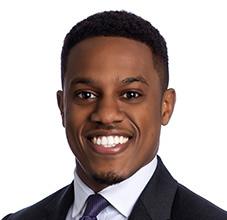
ARRIN RICHARDS is an Associate at Neal & Harwell, where his practice focuses on commercial/ corporate transactions and civil litigation. He previously worked at Vanderbilt University as Assistant General Counsel. Arrin currently serves on the Board of Ethical Conduct for the Metropolitan Government of Nashville and Davidson County and previously served as President of the Napier-Looby Bar Association, and as a Board Member of the Nashville Bar Associations’s Young Lawyers Division. He is a member of the 100 Black Men of Middle Tennessee and the Advisory Board for Moves and Grooves, Inc.
The Nashville Bar Association is deeply troubled by the tragic death of George Floyd. We stand with other bar associations and denounce the violence suffered by countless people of color because of racism and hatred. As lawyers, we believe in and defend the principle of equal justice for all under the law. We are reminded of the words of Dr. Martin Luther King, Jr. who said: “Injustice anywhere is a threat to justice everywhere.”
We have work ahead to repair injustices in our society that inflict trauma, pain, and fear upon our friends, neighbors, and colleagues. We are united against injustice, racism, and discrimination. The NBA commits to listen and learn, to educate and improve, and to accelerate action. As a membership organization of lawyers and judges dedicated to improving the practice of law, we serve the community through our members, and we are called by our mission to educate, serve, and foster fellowship.
As our community looks to lawyers for leadership, the strength of our members will allow us to answer the call to action. Our voices will be needed in the days, months, and years ahead as our city and nation work to heal and repair public trust. As problem-solvers, critical thinkers, and community servants, the NBA will join our community in honest reflection, conversation, and action to ensure equal justice for all.



Be the first person to email the correct answer to Jill.Presley@nashvillebar.org, and your name—along with the correct answer—will appear in the next issue.
JUN/JULY GOLDEN OLDIES
Davidson County Chancery Court Clerk & Master’s office, circa 1970. Seated: Emily Lord; Standing from L-R, Doris Willis, Clerk & Master Ray Barrett, Ruth Duncan, Leander Cato, Lucy Still, Linda Lentz, Deputy Clerk & Master for Part I (Chancellor Ned Lentz) Keith Thomas, Deputy Clerk & Master for Part II (Chancellor Frank Drowota), Perry Happell.

ABA Response to NBA Statement on Racial Injustice
Laura [Baker],
Your statement resonated with me as our duty to listen has never been more front and center. I participated in an ABA/ YLD listening session today and the stories of the challenges and unjust treatment faced by black and brown young lawyers this very month made me realize how much work we have ahead of us.
The ABA applauds the work of the Nashville Bar Association under your leadership. As we have all heard these last many weeks, our silence will be remembered. Let’s not stay silent at this critical time.
Best regards,
Judy Perry Martinez President, American Bar AssociationBACKGROUND CHECK
Cyrus Booker | Bart Pickett
Born in Franklin, Tennessee, Cyrus Booker grew up with 11 brothers and sisters, a stay-at-home mother, and a father who ran a gas station. Following graduation from Franklin High School in 1974, Booker attended Harvard where he played varsity basketball and majored in Government.
Growing up in the Civil Rights era and watching lawyers portrayed on television, Booker had always wanted to be where he could affect change through social justice. He chose to go to Georgetown for law school due to his affinity for the DC area. After law school, he worked at a firm doing regulatory and anti-trust work, but he soon realized that most of the practice in DC was administrative and not his image of a courtroom lawyer.
Needing to get out of DC and into litigation, Booker headed to St. Croix in the Caribbean where he practiced as a territorial prosecutor for a couple of years in the criminal and family divisions.
Over the holidays in 1983, Booker moved back to Nashville and started at Dearborn & Ewing, the third largest firm in Nashville. With that move, Booker became the first black lawyer at a large Nashville law firm. His practice consisted mostly of litigation, but
he also dabbled in many other areas. He recalls partners pulling him into all kinds of cases including real estate, banking, and probate, among others. That diverse experience has continued to serve Booker throughout his practice. Booker excelled at the firm and became a partner.
In 1992, Booker decided he wanted to challenge himself and strike out on his own. His experience had been that if you can generate business in a big firm, you can do it by yourself and make a lot more money. At the time, Nashville lacked any minority-owned firms doing corporate work, so he saw a need that he could fill. Booker continued his own firm for about 10 years.
Booker tried big firm life once more in 2002, working at Baker Donelson for about 5 years. While there, he focused on insurance defense, corporate representation and formation, real estate, probate, and general litigation defense. But he ultimately decided he preferred being out on his own, so he worked with another lawyer for a little while and is now again a solo practitioner at Booker Legal Group.
Booker’s current practice still consists primarily of litigation. His goal for the future is to focus on providing services to smaller businesses, particularly minority-owned businesses. He plans to look at innovative ways to provide that representation, including flat fees and retainer services. He sees his firm expanding to five to eight attorneys.
When asked about the biggest change he has seen in the legal profession during his tenure, Booker points to technology. When he first started practicing, “out of office” meant it; there was no reaching you by email or cell phone. But he considers himself “cli-
ent-focused,” so he likes the constant accessibility that technology brings and he finds that technology has made the practice easier.
Since he last worked in big law, Booker says he has not seen opportunities for African Americans in the legal community progress much. He finds this disappointing.
Booker rejects the term “systemic racism” and prefers to use the phrase “systemic racial bias” as a more productive, encompassing concept. Firms need to look at their initial hiring criteria and re-examine what qualities are truly needed to succeed at a firm beyond the superficial criteria that often limit the pool of minority candidates. He also wants to see firms invest in minorities once they do join the firm, including mentoring programs. He adds that if a mentoring program works for African Americans, it will work for all attorneys. Booker and his wife, Lillian, live in South Nashville and just celebrated their eighth anniversary. She works with him as the office manager. Booker’s son, Omari (40), is a highly respected, local artist. Booker has one grandson (16) who he enjoys playing basketball with. In his free time, Booker can be found helping coach Fisk University’s basketball team, among other community activities. n

BART PICKETT is an attorney at the Law Offices of Julie Bhattacharya Peak where he represents Liberty Mutual Group, Inc.’s insureds and customers of its affiliated groups in litigation throughout Middle Tennessee. Prior to practicing, Pickett worked as a law clerk for the Honorable Judge Thomas W. Brothers of the Sixth Circuit Court of Davidson County and the Honorable Joseph P. Binkley, Jr. of the Fifth Circuit Court of Davidson County.


100 YEARS OF Honoring the Past, Looking to the Future WOMAN SUFFRAGE





Michael G. Abelow
Gail Vaughn Ashworth
Jill Bartee Ayers
Laura B. Baker
Kathryn E. Barnett
Brandon E. Bass
Margaret L. Behm
Hon. Cheryl A. Blackburn
Christen C. Blackburn
Hon. Melissa Kurtz Blackburn
Janice Bossing
Mary Barrett Brewer
Cynthia C. Chappell
William T. Cheek, III
Justice Cornelia A. Clark
Kimberly Faye Clark
Hon. Frank G. Clement, Jr.
Crystal R. Cole
Jonathan Cole
Lisa Ramsay Cole
Brooke McLeod Coplon

Nancy Krider Corley
Hon. Patsy Cottrell
Hon. Martha Craig Daughtrey
Joy Day
100 Years of Woman Suffrage: Honoring the Past, Looking to the Future, a collaboration between the Nashville Bar Association and the Lawyers’ Association for Women, is a very special event celebrating the 100th anniversary of the 19th Amendment. Explore Nashville’s critical role in the suffrage movement and the impact on other voter rights movements that have followed.
Matthew R. Hinson
Hon. Lynda F. Jones
Mary F. Kampa O’Mara

John A. Day
Jacqueline B. Dixon
Brenda Measells Dowdle
Jennifer M. Eberle
Sherie Lea Edwards
Hon. Ana L. Escobar
Anne Frazier
Mary Taylor Gallagher
Paula D. Godsey
Wendy H. Goggin
Melanie Gober Grand
Hon. Marian F. Harrison
William J. Haynes, III
Candi Renee Henry
Emily Ann Herbert
Salvador M. Hernandez
Reggie Hill
Suzanne Gregory Keith
Judith Lojek
Kim Harvey Looney
Hon. Ellen Hobbs Lyle
Monica Walls Mackie
Michele Marsicano
Hon. Anne C. Martin
Hon. Amanda McClendon
Hon. Carol L. McCoy
Marlene Eskind Moses
Hon. Patricia Head Moskal
Barbara J. Moss
Karen Scott Neal
Hon. Alistair Elizabeth Newbern
Courtney Orr
Brant Phillips, Jr.
Sara Anne T. Quinn
Candice L. Reed
*As of July 22, 2020









Helen Sfikas Rogers
Christopher C. Sabis
Stacey Linn Schlitz
Heather Scott
Hon. Marietta M. Shipley
Elizabeth Sitgreaves
Eric W. Smith
Laura Smith
Mary Dohner Smith
Elizabeth Ryder Sykes
Overton Thompson, III
Hon. Aleta Arthur Trauger
Malaka Watson
Vivian Wilhoite
Hon. Bill Young
Jane Young
Mandy Haynes Young
Stephen J. Zralek

History Highlight | Ron McNutt

Reflecting on Local Law Firm Racial Integration
Thirty-five years ago, in August of 1985, the Nashville legal community quietly began its transition toward racial integration. The large law firms at that time were still segregated. Some small law firms had started to integrate, as had the government sector, but large firms in the private sector had resisted the opportunity.
It was a strange time then, reflecting a curious vestige of the past forced segregation when minority members of the bar were excluded from participation in the bar association and the wider legal community. I completed a judicial clerkship in August of 1985 for the late Harry Phillips, Senior Circuit Judge for the US Court of Appeals for the Sixth Circuit. Having a fascination for constitutional law and a familiarity with federal trial practice, I looked for opportunities in civil rights litigation.
The chance to enter that type of practice came about in a historically Black firm on Second Avenue, Williams and Dinkins. The principal partner, Avon N. Williams, Jr., was a lawyer whose career was an instrument of social change. He had started as the associate of Z. Alexander Looby, and had learned and gained confidence from handling desegregation, voting rights, and other civil rights cases while affiliated with
the NAACP Legal Defense Fund. Mr. Williams was ill with ALS (Lou Gehrig’s disease) and was retiring from law practice. His partner, Richard Dinkins, who is now a Tennessee Court of Appeals Judge, was the managing attorney. Russell T. Perkins, who is now a Chancellor in the Davidson County Chancery Court, was an associate. Mr. Williams’ son, Avon Williams, III, was a bright attorney and recent law school graduate, but he was disinterested in pursuing work in the firm and moved on to pursue an opportunity in the State Department. It was a happy but anxiety-producing event when Judge Dinkins told me I was hired.
Before I decided to apply, some of the people I spoke to seemed skeptical about the prospect of a tightly knit minority firm hiring a white lawyer. I had enjoyed working with Black people before and I admired Mr. Williams for his work and legal skills. Still, it took some courage for me to accept the offer. I feared people would assume I was being rebellious, trying to prove a point, or was just arrogant.
I think it was a little later that summer when a large allwhite law firm, Dearborn and Ewing, hired an African Amer -
(continued on page 14)
History Highlight | Reflecting on Local Law Firm...
ican associate, Cyrus Booker. Mr. Booker was taller and more polished than I, and he had a more impressive educational background. He obviously faced bigger challenges and risks than I did, but in some ways, I thought we were both quietly and deliberately intent on making the process of promoting diversity work.
Sheepishly and tentatively, I began telling people I was going to work for Williams and Dinkins. Young lawyers are competitive, and I felt vulnerable. Still, I knew I was making the right decision. My conviction was affirmed one afternoon in Judge Phillips’ chambers. I had told his secretary, Dene Bailey, about my plans. Judge Phillips approached me, beaming with happiness, and said, “Say, I hear you’re going to work for a fine law firm.” I could hardly believe my ears. He said that he frequently defended Mr. Williams’s reputation in conversations at the Belle Meade Country Club, saying that he always “used the law to change the law.”
Shortly afterward, Judge Phillips
was hit by a car in London and died. I was devastated by the loss, but in August of 1985, I began a civil rights litigation practice at Williams and Dinkins. We were in a competitive and stressful environment, and the economic and social challenges we experienced were serious. There were exhilarating and defeating moments, hard choices, and humiliating defeats—and I loved it.
Over the years, I saw great changes to the city and its legal community. Businesses, such as Saturn Corporation, urged the major firms to hire minority lawyers. The Nashville Bar Association, which had excluded minorities past the 1960s, actively began to facilitate the hiring of Black attorneys by the major firms. In the mid- to late-1980s, there were several lateral transfers of Black attorneys from the public sector to major law firms. By April of 1996, the idea of a minority firm had become an anachronism and I moved on to work for the Attorney General of Tennessee. I had experienced great personal changes. At the time I started out, I was
Valuation, litigation, forensic and mediation support services require an independent and objective assessment. Price CPAs has assisted in cases involving these services.
THESE SERVICES INCLUDE:
• Minority shareholder disputes
• Valuations
• Wrongful Death/Personal Injury
• Divorce (equitable distribution)
• Commingling & Transmutation
• Business damage assessment and determination
• Solvency analysis and fraudulent conveyance
• Litigation consulting services.
THESE SERVICES ARE LED BY THE FOLLOWING PROFESSIONALS:
• Tom Price, CPA/ABV/CFF, CVA
• Alan Webb, CPA
• Mark Fly, CPA, ABV
• Scott Farrell, CPA
• Gary Pounders, CPA, CFE
disillusioned with organized religion. But the church in the Black community was the cornerstone of the movement for racial equality. Mr. Williams, Judge Dinkins, and Chancellor Perkins were active in their churches, and their strength of character inspired me. Judge Dinkins’s frank and direct approach to his work was refreshing, and Chancellor Perkins had a genuine humility that rested on his deep faith and profound respect for humanity. Gradually, I came back to the Presbyterian Church, which had been the church of my grandparents, and of Mr. Williams as well.
My experience was an adventure, but it was a singular opportunity to share the company of some stellar men and to help some wonderful people rising above oppression. n

RON McNUTT has been an attorney for the State of Tennessee for 20 years, and has been an attorney in Nashville for 36 years. Most of his work with the state has been in the field of workers’ compensation law as a litigation attorney for the Subsequent Injury and Vocational Recovery Fund. He was in private practice at Williams and Dinkins for over 10 years.
GADGET OF THE MONTH
Contact Tracing Apps | Bill Ramsey
& Phillip Hampton
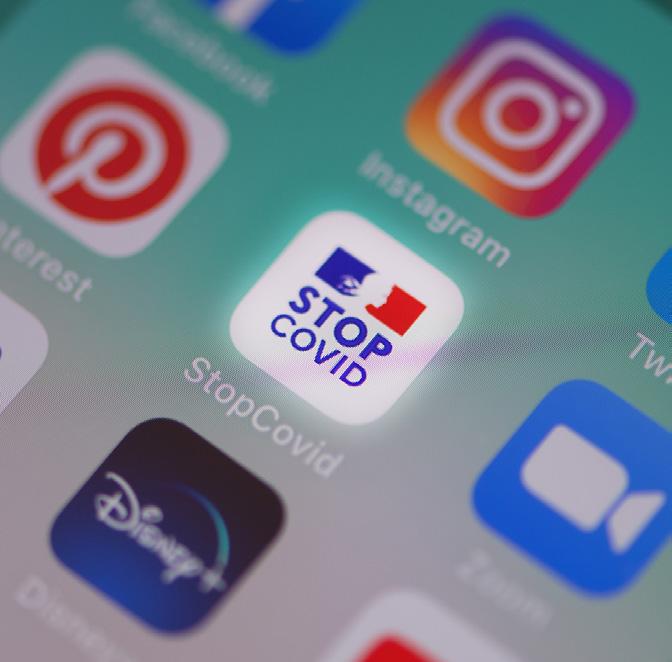
The global pandemic caused by the COVID-19 virus has had a huge impact on almost all aspects of our day-to-day lives. We have had to change the way we work, meet, socialize, and relax. Technology has been critical in helping us manage the life-work changes mandated by the pandemic. One new application of technology that has emerged is a tech-enabled method for an old practice known as “contact tracing.”
While the term “contact tracing” is new to many of us, the practice is quite old. Public health officials have been doing contact tracing for decades as a very effective means of stifling outbreaks of communicable diseases. Once a person is identified as having a highly contagious disease, he or she is interviewed by a public health worker to determine who the infected person has been in contact with while contagious. Those individuals are then contacted and advised to self-isolate and get tested. The idea is to stop the spread of the disease by re-tracing the steps of the infected person, and isolating those who were in close proximity before they have had a chance to potentially spread the disease to their circle of contacts. The practice of contact tracing has become even more important with COVID-19, as some carriers of the virus can be asymptomatic
and completely unaware that they may be infecting others around them.
So, how does technology change the way public health officials do contact tracing? It’s easy when you think about it. What is the one device that just about every one of us take with us virtually everywhere we go? Our smartphone. So, if someone tests positive for coronavirus, wouldn’t it be easy and save time for the contact tracers if that person’s phone had a record of all other phones (carried by people) that had been in close proximity to the infected individual over the past week or so? Yes. In theory, if smartphones could somehow keep a log of other phones that had been within six feet of the infected person’s phone, it could hypothetically go back and warn those other smartphone users that they had been potentially exposed to the virus. That is the idea behind using technology—and specifically smartphone technology—to conduct rapid contact tracing.
Apple and Google, who dominate the smartphone market, saw how useful smartphones could be in helping public health officials curtail the spread of the virus. In a rare joint venture, they developed a toolkit of sorts that app developers can use to build contact tracing apps. The Apple/Google toolkit, which works on both iPhone and Android phones, uses Bluetooth technology to automatically communicate with other smartphones within a certain proximity. A user would have to opt-in to the contact tracing app that uses this technology; but afterwards the system would work automatically without any prompting from the user.
So, if I had a contact tracing app on my phone that uses this technology, and I had opted-in to allow the tracing,
my phone would emit a unique identifier using the Bluetooth signaling capability of the phone. Other smartphones that came within so many feet (say 6 feet) of my phone for a certain length of time (say 15 minutes) would record my unique identifier in their history log; and my phone would record their unique identifier in my phone’s history log. Then, if I happen to test positive for coronavirus, a public health official could take my phone and “see” the other phones that had been in close proximity to me within the past week. The public health official could then take those unique identifiers and automatically contact the users of those other phones via the app to let them know that they had been potentially exposed to the virus. What could go wrong?
Well, as it turns out, quite a few things could go wrong. First, for such a system to be effective, a large majority of the population would need to adopt it. A large majority of the population does indeed own a smartphone; but, so far, adoption of contact tracing apps has been nowhere near universal. While some countries have developed and released a universal contact tracing app for their citizens, the US has not developed—nor signaled intent to develop— any such federal app. Instead, the individual states have been left to develop contact tracing apps. Near the beginning of the pandemic, several states seemed eager to develop contact tracing apps for their citizens. As the pandemic has lingered, however, the promised contact tracing apps from state health officials have been few and far between. As of this writing, only three states—Alabama, North Dakota, and South Carolina— have requested access to the Apple/
(continued on page 20)

in your future... Meet lawyers across
JOIN THE NBA LAW STUDENT DIVISION
The NBA—with over 2,500 members—is the largest metropolitan bar association in Tennessee. Membership in the NBA offers law students the opportunity to learn about the actual practice of law through committee participation, discounted CLE seminars, and publications. In addition, various networking opportunities are available for those who participate in NBA activities.
Join online now at NashvilleBar.org/Join or complete the form on the reverse side of this flyer and return to the Nashville Bar Association at the address below.
My NBA membership provides me with many benefits including excellent CLE programs at convenient locations and reasonable prices. It also provides opportunities to network with members of our profession whom I otherwise would not see but for NBA’s events, programs, and socials.
— Judge Frank ClementI’m a member of the NBA because its excellent programming makes me a better lawyer and because its social events make me a happier, more well-rounded professional.
—Erin Palmer Polly, NBA Past PresidentWhat I think makes the NBA stand out is its unique ability to draw together local lawyers and legal professionals from a variety of backgrounds and interests into one place. It brings together the broadest spectrum of lawyers who are also well-versed in Nashville’s jurisprudence.
— Daniel Satterfield


Confrontation Rights & Public Trial During a Pandemic
Tennessee courts are formulating plans on how to conduct business in the age of social distancing. Which means eventually, we will be headed back to the courtroom for trials. But what does that look like? How do we ensure public access to the courtroom? How do we protect criminal defendants’ constitutional rights while preventing COVID-19? We do not presume to definitively answer to those questions, but existing case law may provide guidance.
The Confrontation Clause in the Age of COVID-19
How does one confront witnesses in a socially distant setting? Both the United States and Tennessee Constitutions guarantee the right to confrontation.1 Indeed, the Tennessee Constitution says criminal defendants have the right to meet witnesses “face to face”.
The United States Supreme Court held in Maryland v. Craig that, although face-to-face confrontation is preferred, the federal Confrontation Clause does not require face-to-face meetings in all cases.2 Courts may allow alternatives to in-person testimony if necessary to “further and important public policy” and when the reliability of testimony can be assured.3 For
example, in Craig, the Court held that a child to testifying via one-way close-circuit television feed satisfied confrontation. In short, confrontation is generally satisfied when the defendant can cross-examine the victim and the fact-finder can judge the witness’s credibility.4
Conversely, Tennessee’s Constitution guarantees criminal defendants the right to meet witnesses “face to face”. There is some debate over whether the face-to-face language in the Tennessee Constitution affords criminal defendants more protection than they receive from the Federal Constitution. In State v. Deuter, the Tennessee Supreme Court observed in dicta that other states had interpreted the face-to-face language to impose a higher right than that found in the federal constitution.5 However, in the end Deuter provided no guidance regarding the protection afforded by the Tennessee Constitution. In the years since Deuter, the Tennessee Supreme Court appears to have repeatedly rejected the suggestion that the face-to-face language in the Tennessee Constitution provides more protection than the US Constitution.6 However, none of the cases since Deuter squarely presented the face-to-face confrontation
(continued on page 18)
issue to the Court.
The Tennessee Court of Criminal Appeals recently addressed the Confrontation Clause and possible use of remote testimony in State v. Seale. 7 In that case, the trial court held that outof-state prosecution witnesses could testify via two-way videoconferencing technology. The Court of Criminal Appeals acknowledged that Tennessee had adopted the same analysis as the federal courts when addressing confrontation issues under the state constitution. However, the Court held that testimony via two-way videoconferencing was not constitutionally equivalent to face-to-face confrontation. Therefore, before a witness may testify via twoway videoconferencing software, the trial court must conduct a Craig analysis and make case- and witness-specific findings about whether the denial of a face-to-face confrontation is necessary to further an important public interest. In short, “face-to-face confrontation in Tennessee means simply that, face-to-face communication, unless there is some
greater public interest that overrides the directives of our great state’s constitution.”8
The Right to a Public Trial in the Age of COVID-19
Prior to COVID-19, excluding citizens from the courtroom was risky business but the practical effect of the pandemic is a sharp reduction in the number of citizens allowed in the courtroom. The changes that accompany COVID-19 beg the question of how to balance the court’s directives aimed at improving public health with a defendant’s Sixth Amendment right to a public trial.
In the 2019 decision State v. Franklin, the Tennessee Court of Criminal Appeals overturned a child rape conviction because the defendant’s parents were barred from the courtroom when the four-year-old victim testified.9 When the State requested, but put on no proof, that the courtroom should be closed when the victim testified, the trial court granted the request. The conviction was
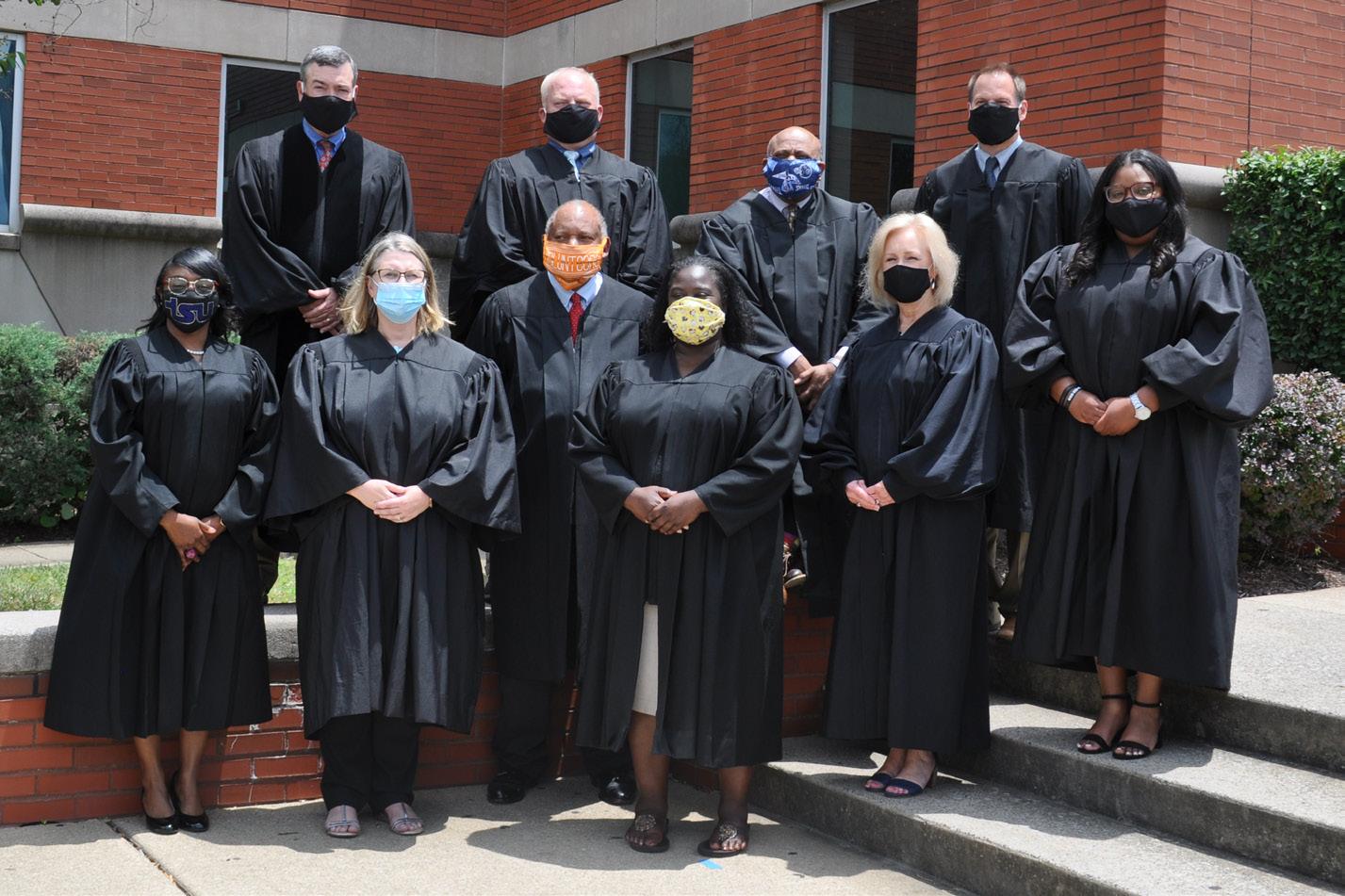
overturned based on the Sixth Amendment’s right to a public trial as well as the Tennessee Constitution which ensures, “That in all criminal prosecutions, the accused hath the right to…a speedy public trial.”10
The Franklin decision relied heavily on Waller v. Georgia in which the US Supreme Court set out four factors that must be shown by the party requesting courtroom closure: (1) there must be an overriding interest likely to be prejudiced; (2) the closure must be no broader than necessary to protect that interest; (3) the trial court must consider reasonable alternatives to closing the proceeding and; (4) it must make findings adequate to support closure.11
Lastly, it is important to note a majority of federal circuits distinguish between a total closure of the courtroom and a situation where only partial closure to certain people is sought.12 While both total and partial closures infringe upon a defendant’s constitutional right to a public trial, the Sixth Circuit Court of Appeals, in United States v. Simmons, joined the majority of circuits and adopted a modified Waller test for partial closures. In this modified test, the necessity of demonstrating an “overriding interest” is replaced by a “substantial reason” and the other three prongs of the Waller test remain the same.13 However, it does not appear that Tennessee state courts have adopted the modified Simmons test, and the Franklin court applied the original Waller factors without mention of the modified Simmons test.14
A packed courtroom is similar to the dance floor at a Broadway bar or a beach: if left unchecked, they can pose a threat in the spread of COVID-19.
(continued on page 24)
LEGISLATIVE COLUMN
Capitol Notes | Peggy Sue, the Beagle Hound

A Tale of Two Sessions
As Charles Dickens wrote, “It was the best of times, it was the worst of times, it was the age of wisdom, it was the age of foolishness, it was the epoch of belief, it was the epoch of incredulity, it was the season of light, it was the season of darkness, it was the spring of hope, it was the winter of despair, we had everything before us….”
In January 2020, the state’s economy was zipping along, and state revenues along with it. In June 2020, the state’s economy—greatly driven by tourism and the hospitality industry— and state revenues were crashing. January 2020 had a proposed budget with healthy programming increases. June’s 2020 enacted budget is just about the same as last year’s, and that level of funding may be optimistic.
All Done for the Year
With the adoption of HJR 1247 a little after 3:00am on Friday, June 19, the 111th General Assembly adjourned sine die, that is, without a date to return. The 112th General Assembly will convene in organizational session on January 12, 2021.
Top Five Legislative Enactments
1. Budget Package . After a bit of drama and horse trading, the appropriations package of Public Chapters 760, 759, and 758, was enacted into law. To give a flavor of the austerity the budget imposes, state employees and K-12 teachers will forego raises this year. The $39.4B spending plan doubles the caps for the items eligible for the sales tax holiday that ran from July 31 to August 2, and includes a restaurant sales tax holiday for the weekend of August 7 to August 9. The plan also has a buyout program for state employees, presumably to encourage the retirement of more highly compensated and older state employees. The plan has a $200M distribution for city and county governments, which may be used for general operating expenses. The effective dates are for the fiscal year beginning July 1, 2020.
2. Fetal Heartbeat . With the budget negotiations at a standstill, the Senate offered to pass fetal heartbeat abortion legislation near and dear to the hearts of many conservative House members. Quickly, the deal came together, and the Senate adopted a 38-page amendment to SB 2196 by Johnson / HB 2263 by Lamberth which clearly seeks a courtroom path to challenge the 1973 Roe v. Wade decision establishing a constitutional right to an abortion. Litigation challenging the legislation has already been filed in federal court in Nashville, and the matter will be heard by District Court Judge Chip Campbell. The effective date was July 13, but the court issued a restraining order on the same day.
3. Billboard Regulation . On September 11, 2019, the US Court of Appeals for the Sixth Circuit in the case,
Thomas v. Bright, declared Tennessee’s Outdoor Advertising Control statutes unconstitutional, because the Court found the on premises sign exception to be content-based and subject to strict scrutiny, and the statute failed to survive that constitutional test. The Tennessee Department of Transportation (TDOT) responded to the case by suspending its enforcement of the statute. The General Assembly responded to the case with SB 2188 by Becky Massey / HB 2255 by Dan Howell / Public Chapter 706 which addresses the Court’s concern and maintains the State’s receipt of $93 million in federal highway funds which are conditioned on a state having a functional billboard control program. The effective date was June 22.
4. Contractor/Subcontractor Relations. SB 2681 by Paul Rose / HB 2706 by Ron Gant / Public Chapter 749 formalizes a statutory relationship among owners, prime contractors and remote contractors, which may not be waived by contract. The new statute continues authority for a maximum retainage of 5% and establishes a prompt payment mechanism, which if violated, permits a stoppage of work by the unpaid party. The effective date was July 1.
5.
Drug-Free School Zone Reform
Under the former law, drug offenses occurring within 1,000 feet of a school zone were subject to significantly enhanced criminal penalties. Under the sponsorship of Judiciary Committee Chairs, Senator Mike Bell and Representative Michael Curcio, the General Assembly reduced the distance to 500 feet. At first glance, it doesn’t appear to be significant, but SB 2734 / HB 2517 carried a positive fiscal note of around
(continued on page 20)
Gadget of the Month | Contact Tracing Apps
(continued from page 15)
Google toolkit to develop contact tracing apps. Another state, Utah, has gone out on its own, developing an app that is not based on the Apple/Google toolkit standard, raising questions about the ease of sharing information with other nonUtah apps.
There are already questions about privacy issues related to a contact tracing app; and Americans are reluctant to acquiesce to any type of government “tracking,” especially via their smartphones. If private companies—including for-profit entities—take up the slack and develop contact tracing apps, more questions may be raised about what these companies may be doing with information they gain access to from these apps and how they potentially can market this data for profit.
So, this idea of using smartphones to conduct contact tracing, while it is indeed technically viable, may not yet be accepted widely enough to be a practical solution. Perhaps more action from the CDC or WHO, who so far have shied away from developing or endorsing any contact tracing app, may be needed to make a widely accepted contact tracing app in the US a reality.
Take good care,
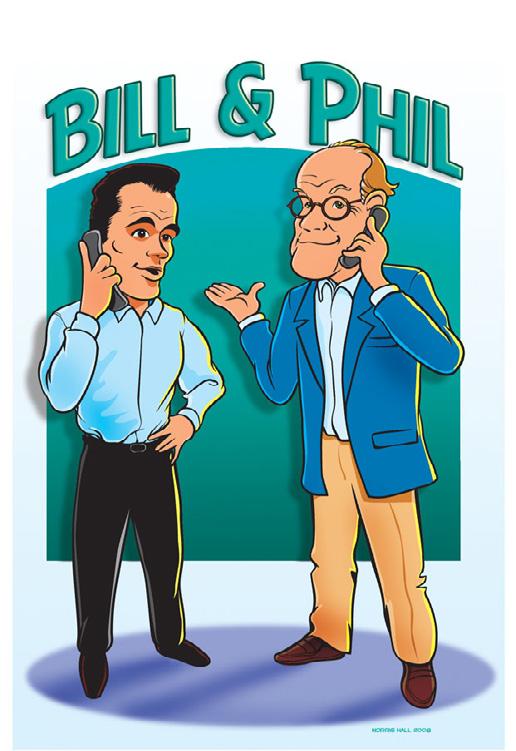
CAPITOL NOTES
(continued from page 19)
$7M dollars in avoided confinement costs. The effective date is September 1, 2020.
Worth a Mention (But Not Top Five)
• Official state nickname is now the “Volunteer State” (Public Ch. 516)
• Curbside pickup for beer OK (Public Ch. 704)
• Still a day of special observance, but no gubernatorial proclamation of Nathan Bedford Forrest’s birthday (Public Ch. 707)
• Legal age for tobacco purchases increases from 18 to 21 (Public Ch. 732)
Extraordinary Session for August?
Governor Bill Lee continues to ponder an extraordinary session call to deal with the COVID-19 tort liability issue and insurance coverage and reimbursement rates for telemedicine services. Odds around the doghouse seems to be leaning in favor of such, but public health concerns surrounding the virus and its spread may play a role in the decision-making calculus. If not, expect Governor Lee to extend the effective date of Executive Order 53 which limits tort liability exposure of health care providers licensed under Tennessee Code Annotated, Title 33, 63 or 68.
Calendar
Notes
August 18 marks the 100th anniversary of Tennessee’s ratification of the 19th Amendment to the US Constitution for the adoption of women’s suffrage for the entire country in all elections. In celebration of this milestone, the NBA is holding a very special (vir-
tual) event, 100 Years of Woman Suffrage: Honoring the Past, Looking to the Future , on Thursday, August 13. Visit NashvilleBar.org/Suffrage to learn more.
Governor Lee’s Executive Order 50 extending the COVID-19 state of emergency effectively cancels high school football games originally scheduled for August 21 and 28.
State and NBA offices will be closed on Monday, September 7, for the Labor Day holiday. n

PEGGY SUE is fond of the classic 1957 Buddy Holly song. When hunting legislative news or biscuits, she is hard to contact.


Trial By Zoom: How to Be an Effective Zoomer
The wheels of justice may turn slowly, but they must never grind to a halt.
The legal industry has learned this lesson recently courtesy of the COVID-19 pandemic. Without a fully functioning mechanism with which criminal and civil complaints proceed to trial, we lose the trust of our citizenry.
The unprecedented crisis has resulted in a creative, exciting, and frustrating exercise of finding new methods and technology to solve the problems we face. Courts, through planning and testing, have realized that there is a significant learning curve to overcome regarding the use of technology and web conferencing to conduct legal business. In May, a Nashville court conducted its first web conference bench trial and a Texas court held the nation’s first jury trial via web. Even the US Supreme Court has begun conducting oral arguments telephonically—a first for the notoriously technophobic highest court in the nation.
As these measures become more common, courts have the option to choose from many different web conferencing tools, but no standard has yet emerged. Whether the court is
using Zoom, WebEx, GoToMeeting, Microsoft Teams, Polycom, or Skype, functionality is similar across the platforms, save for Zoom’s relatively unique breakout room feature. All of these platforms are built to support live video and audio, display evidence and demonstratives, and record.
Feedback from the Bench
The response from those using the newly implemented technology is generally positive, despite the adjustments needed and technical difficulties encountered. Early on, courts experienced considerable challenges: selecting conferencing tools that balance court needs with security compliance requirements, training staff on new technology, and upgrading internet bandwidth to accommodate these innovations on a professional level. These concerns are actively being discussed by judges as the legal world continues to work toward resuming jury trials.
Without foolproof guidelines, legal professionals are doing their best with what is currently available. While communication platforms and rules may change rapidly, there are
(continued on page 22)
some ways to be prepared regardless. Consider some of the following advice to avoid any missteps:
• Introduce your staff to new technology early to ensure appropriate security measures and compliance requirements are in place.
• Use graphics and virtual demonstratives to balance out that which is lost to attorneys when in-person trials are impossible.
• Redact all personal identifying information from any exhibit being presented.
• Provide hard copy binders to the court, opposing counsel, and any testifying witness prior to the virtual hearing so that no one can blame technical issues for lack of authenticity; debate continues regarding individual juror binders.
• Ensure a stable internet connection! Recommendations suggest a minimum of 8Mbps upload/download speeds. You can test your internet speed through your internet provider’s web-
site or at Speedtest.net
• Dress appropriately; virtual hearings are still formal proceedings. Some courts even broadcast via YouTube or another service to maintain the public attendance compliance.
• Find a quiet place free of other people or distractions and ensure your clients/ witnesses do the same.
• Practice! Practice! Practice! If you normally use a trial technician, use them now, too.
• Prepare your clients and witnesses for the remote hearing by sharing best practices and tips. Talk with them about what they can expect and try a dry run to ensure everything works properly and they are comfortable with the process.
• Muting your microphone does not equal confidentiality. Remember that you can still be seen.
• Chat functions inside virtual meetings are not private. If you need a personal chat room to discuss with your client during the hearing, Zoom offers breakout rooms that afford private attor-
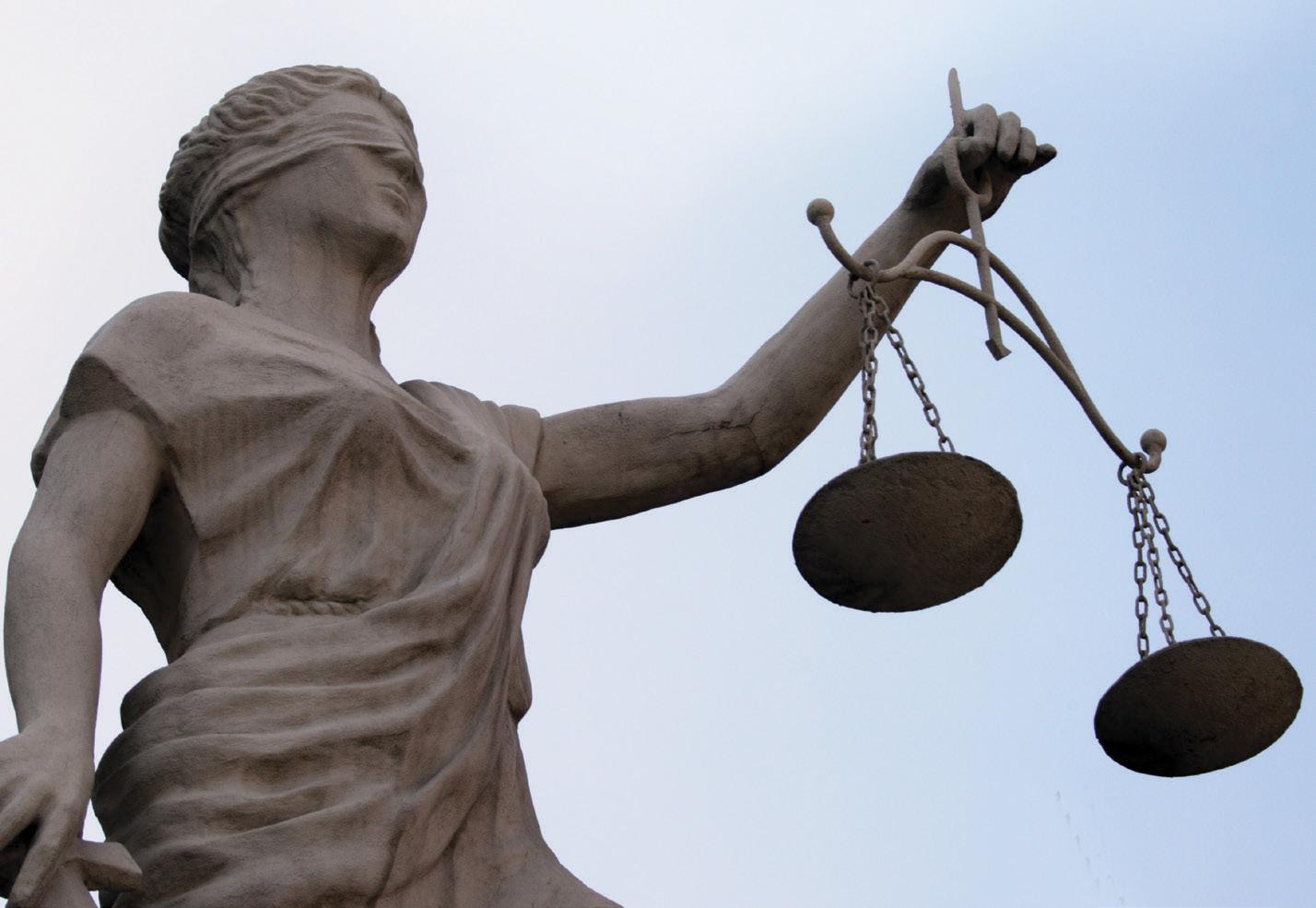
ney-client communications.
Outside of preparation and confidentiality considerations during this virtual time, keep these small, yet crucial tips in mind, as well:
• Select a non-distracting background such as a plain wall or bookshelf. The judge does not want to see you giving a closing on a fake beach in the Bahamas.
• Stay seated during the hearing (walking is distracting), and for heaven’s sake, do not drive while on web conference.
• Plug in your devices to avoid dead batteries.
• Do not sit with a light source behind you (i.e., windows and lamps); otherwise, have a more powerful light source in front of you to compensate for the silhouette affect.
• Arrange the webcam at eye-level to avoid hunching your back or craning your neck for extended periods. Be mindful of your distance to the camera and microphone. Your head and shoulders should fill the frame of your camera.
• Use of multiple monitors is recommended. This will grant you room for the attendees’ window, the screen being presented, your own notes or additional applications for presenting evidence or demonstratives, and digital breakout chat programs for team communication.
• Mute your microphone when you are not talking.
• Test your speakers and microphone together and keep cell phones a few feet away to avoid feedback.
• Be cognizant of what your screen is
(continued on page 24)
Impact on Malpractice Claims? | Mark Bassingthwaighte

During a recession, and for the three years following, there has historically been a huge spike in paid claims, which is a number that typically does not return to a more normalized level until five years post-recession. In addition, and looking back at the events of 2008 specifically, legal malpractice insurers experienced a spike in paid claims above $10,000 that ranged from 35% to 41%. I share this to explain why recessions always capture the attention of the insurance industry because given how the markets look of late, another recession appears to be imminent thanks to the COVID-19 pandemic.
As a Risk Manager for a legal malpractice insurer, one interesting question for me is how will COVID-19 impact our insureds? Lawyers are already having to deal with telecommuting and all the associated risks, not the least of which is a significant increase in the risk of someone at a firm becoming a victim of a cybercrime. Several lawyers and more than a few clients will be forced to deal with significant and potentially longterm reductions in household income. Some lawyers may simply say enough is enough and decide to retire while others may be forced into postponing retirement due to steep declines in their retirement accounts. I could go on, but admittedly, this is starting to depress me, so I will stop.
The point I am trying to make is that everyone—including lawyers—is trying to find a way to maintain some level of control and normalcy during very uncer-
tain times. The challenge here is to not let emotions, such as fear and panic, cloud one’s personal and professional judgment—because that’s when poor decisions are made. For example, investments get sold at the market’s bottom, an attachment to an email that claims to have the answer to preventing the spread of coronavirus is opened too quickly, or an important deadline never gets entered into a calendar all because worry and fear rule the day.
Based upon what has happened because of past recessions, coupled with the realities of the response to COVID-19 from the individual level to that of governments, here is what legal malpractice insurers are currently concerned about. First, claim frequency and/or claims severity will change for any number of reasons. We just cannot accurately predict how. At a minimum, clients will look to blame their lawyers when their business dealings go south because of the near-certain recession that is coming. Lawyers and staff will make mistakes that would otherwise not have been made due to the rapid transition to working from home and/ or being under excessive stress. And clients—who are also experiencing excessive stress—will question decisions they made considering the advice their lawyer gave them if their legal matter does not work out the way they expected it to. Regardless, there will be a new normal in terms of claims, at least for a few years.
Second, policy retention may be an issue; but again, we cannot accurately predict how this might evolve. Lawyers facing difficult financial times may choose to leave the practice of law entirely or may decide to allow their policy to lapse and simply go bare to
save some money. Of course, there is the flip side, some who have previously been bare may decide now’s the time to purchase coverage because the value of their assets have dropped, and their level of risk has risen. Only time will tell. It can be difficult to turn off the noise and stay focused on the tasks at hand—to stop worrying about finances and family and take care of the business side of the practice; and to keep emotions in check as you try to find the time to document your files, keep your clients informed, and struggle to deal with courthouse closures and emergency orders. It is a given that mistakes will be made; but it seems to me that times like these truly underscore one of the values of having a malpractice policy. It is the comfort that comes with knowing that if some mistake does eventually turn into a malpractice claim, you have got coverage in place.
That said, I cannot help myself. I need to add one final comment. For all of you who have up until now made a choice to forgo coverage, I can’t imagine a better time to rethink that decision, because as I stated above, the value of assets has dropped, and the level of risk has increased. The peace of mind that comes with the purchase of a legal malpractice insurance policy is worth every penny. n
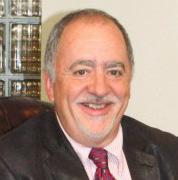
MARK BASSINGTHWAIGHTE is Risk Manager with ALPS. He has conducted over 1,200 law firm risk management assessment visits, presented over 400 CLE seminars throughout the US, and written extensively on risk management, ethics, and technology. He is a member of the State Bar of Montana and the American Bar Association where he currently sits on the ABA Center for Professional Responsibility’s Conference Planning Committee.
Editorial | Confrontation Rights & Public Trial...
(continued from page 18)
LAWYER REFERRAL & INFORMATION SERVICE

Are you looking for another avenue for revenue and referrals, specifically those tailored to your practice area?
If so, the NBA Lawyer Referral & Information Service needs you. We are currently in need of attorneys who handle issues such as:
COVID-19 Related Employment Immigration Workers’ Compensation
For information on joining the LRIS, visit NashvilleBar.org/ LRISAttorneyRegistration or contact LRIS@nashvillebar.org. We look forward to hearing from you!
THE EXCLUSIVE REFERRAL SERVICE FOR THE NBA
However, unlike shuttering a bar or beach, closing a courtroom during a trial has constitutional consequences. Excluding everyone other than the parties and essential court staff from the courtroom without taking steps laid out in case law invite scrutiny. For as former US Supreme Court Justice and civil libertarian William Douglas stated, “A trial is a public event. What transpires in the court room is public property.”15 n
AUTHORS’ NOTE: This article represents the opinions of the author(s) and not necessarily those of the Office of the TN Attorney General and Reporter.
Endnotes
1 U.S. ConSt., amend. VI; tenn. ConSt. art. I, § 9.
2 Maryland v. Craig, 497 U.S. 836, 849-50 (1990).
3 Id. at 850.
4 Id. at 847.
5 State v. Deuter, 839 S.W.2d 391, 395 (Tenn. 1992).
6 See, e.g., State v. Maclin, 183 S.W.3d 335, 343 (Tenn. 2006); State v. McCoy, 459 S.W.3d 1, 12 (Tenn. 2014).
7 State v. Dennis Lee Seale, No. M2019-01913-CCA-R9-CD, 2020 WL 40445227 (Tenn. Crim. App. July 20, 2020).
8 Id. at *8.
9 State v. Franklin, 585 S.W.3d 431 (Tenn. Crim. App. 2019).
10 Id. at 469.
11 Id. at 470 (citing Waller v. Georgia, 467 U.S. 39, 48-49 (1984)).
12 See, e.g., United States v. Simmons, 797 F.3d 409, 413–14 (6th Cir. 2015).
13 Id. at 414.
14 Franklin, 588 S.W.3d at 470-71.
15 Craig v. Harney, 331 U.S. 367, 374 (1947).

JENNY CHARLES is an Assistant District Attorney with the Davidson County District Attorney’s Office. She graduated from the University of Memphis School of Law in 2006.

COURTNEY ORR is an Assistant Attorney General with Criminal Appeals Division of the Tennessee Attorney General’s Office. She is a 2014 graduate of the University of Tennessee School of Law.
HOW TO BE AN EFFECTIVE...
(continued from page 22)
sharing. Only share the application window needed instead of the whole screen. If the application allows tabs, remove extraneous ones.
• If nothing is being displayed, or the prior exhibit is no longer being discussed, stop sharing your screen!
A civil society functions properly when its judicial system functions properly. The notion that we may be able to again practice our trade in the traditional setting in the near future is hampered by distancing requirements, mandated closures, and growing virus cases. After several months of debate, web conferencing (while certainly imperfect) appears a more viable and palatable alternative to halting most in-person court proceedings for a lengthy time period. The future is here—don’t let it zoom by you. n

KRISTIN THOMAS is the owner of KT Designs, LLC, where she consults with litigation teams nationwide on argument strategy, demonstratives development, jury consulting, and presentation technology in a wide range of practice areas.

Who Bears the Risk? Contractual Obligations & COVID-19
EDITOR’S NOTE: This article is a modified version of a longer article published in the ABA’s Spring 2020 edition of the Entertainment and Sports Lawyer
COVID-19 and the measures taken to combat the spread of the virus have resulted in commercial parties not performing their contractual obligations. To determine which party will bear the risk of non-performance, Tennessee law suggests that courts may generally engage in a three-step inquiry. First, did the parties intend for one party to bear the specific risk of non-performance under the circumstances at issue? If the court cannot determine the parties’ intent, the next inquiry is: were the circumstances that caused the non-performance foreseeable? If the circumstances were not foreseeable, the third inquiry is: do the common-law doctrines of impossibility of performance and frustration of commercial purpose apply?1
First Inquiry: Did the Parties Intend for One Party to Bear the Risk?
All breach of contract inquires begin with determining the parties’ intent. If a court can determine that the parties
intended for one party to bear the risk of the specific harm that flows from the circumstances at issue then the court’s inquiry should end. In the context of non-performance allegedly caused by COVID-19, how one characterizes the circumstances that caused non-performance may be a key issue in determining the parties’ intent. Was the non-performance caused by a global pandemic or government guidelines to cease certain behavior?
If a court cannot determine the parties’ intentions regarding the allocation of risk for the circumstances that led to non-performance, the court should then ask whether the circumstances at issue were foreseeable.
Second Inquiry: Were the Circumstances that Caused the Non-Performance Foreseeable?
Performance is not excused if performance becomes impossible due to circumstances that should have been foreseen by the non-performing party.2 For example, the Tennessee Supreme Court refused to excuse a barge operator from a contract to deliver goods when a flood made the river im -
(continued on page 26)
possible to navigate because the court found the change in water levels was an uncertainty “for which the defendant ought to have provided in his contract.”3 The court found that, by failing to address this foreseeable uncertainty, the defendant “took the risk upon himself, and must abide the consequences.”4
Again, how one characterizes what caused the non-performance will be a crucial issue that may be determinative on what was foreseeable. For example, what should be foreseeable: the risk of business interruption or the circumstances created by COVID-19?
If the circumstances that caused non-performance were foreseeable, the court’s analysis concludes it can allocate the risk of non-performance. If the circumstances were not foreseeable, the court should proceed to the third inquiry: do the common-law doctrines of impossibility of performance and frustration of commercial purpose apply?
Third Inquiry: Do the Doctrines of Impossibility of Performance or Frustration of Commercial Purpose Apply?
In general, when a party creates an obligation to perform by contract, then that party must perform the obligation.5 However, two recognized defenses may excuse a party’s non-performance of contractual obligations due to unforeseen circumstances: (A) impossibility of performance and (B) frustration of commercial purpose.
Impossibility of Performance. The impossibility-of-performance doctrine is a defense that excuses a party’s non-performance if performance was rendered physically impossible or extremely impractical by unforeseen events.6 The doctrine does not apply
“where the impossibility is caused by the party’s own conduct or where the impossibility is caused by developments which the party could have prevented or avoided or remedied.”7
A subcategory of impossibility-of-performance cases involves performances that became illegal after the contract was formed. The Tennessee Supreme Court has held that where the performance of an agreement which was lawful at the contract’s inception “is made unlawful by subsequent enactment, the agreement is thereby dissolved and the parties discharged from its obligations.”8
Frustration of Commercial Purpose
Where the impossibility-of-performance doctrine involves the impossibility or extreme impracticability of performance, the frustration-of-commercial-purpose doctrine addresses situations in which “performance remains possible but the expected value of performance to the party seeking to be excused has been destroyed by a fortuitous event, which supervenes to cause an actual but not literal failure of consideration.”9 However, the frustration-of-commercial-purpose doctrine is limited to cases of “extreme hardship.”10 To show extreme hardship, the party seeking to be excused from performance bears the burden to prove that “the value of counterperformance is totally or nearly totally destroyed.”11
Additional Considerations
One potentially significant distinction between COVID-19 and the fact patterns Tennessee courts have addressed is the temporary nature of the commercial restrictions raised in the time of COVID-19. Another issue will
be determining which party bears the risk of performing when a governmental entity “suggests” certain behaviors, and who should be liable for claims arising from a party continuing to perform notwithstanding a “suggestion” to shut down.
It is unclear how courts will rule on these issues. However, the doctrines outlined above will assist courts in determining the rights and obligations of parties to commercial contracts as they grapple with the commercial consequences of efforts to halt the spread of COVID-19. n
Endnotes
1 This article does not address the potential differences between the common law defense of impossibility of performance and the UCC defense in the context of the sale of goods. See tenn. Code Ann § 47-2-615.
2 Wilson v. Page, 325 S.W.2d 294, 298 (Tenn. Ct. App. 1958).
3 Bryan v. Spurgin, 37 Tenn. 681, 686 (1858).
4 Id 5 Wilson, 325 S.W.2d at 298.
6 See N. Am. Capital Corp. v. McCants, 510 S.W.2d 901, 903 (Tenn. 1974).
7 Jenkins Subway, Inc. v. Jones, 990 S.W.2d 713, 725 (Tenn. Ct. App. 1998) (internal quotations omitted).
8 Heart v. E. Tenn. Brewing Co., 113 S.W. 364, 365 (Tenn. 1908).
9 See McCants, 510 S.W.2d at 903 (adopting the California Supreme Court’s distinction of the two theories in Lloyd v. Murphy, 153 P.2d 47 (CA. 1944)).
10 Id. at 904.

11 Id A graduate of Vanderbilt University and the Washington University School of Law in St. Louis, AUSTIN MOORE focuses his practice on commercial and intellectual property litigation at the law firm of Riley Warnock and Jacobson. He may be reached at amoore@rwjplc.com
PROVIDING
A PORTAL TO HELP MIDDLE TENNESSEANS IN NEED
Pro Bono Matters | Andrae Crismon
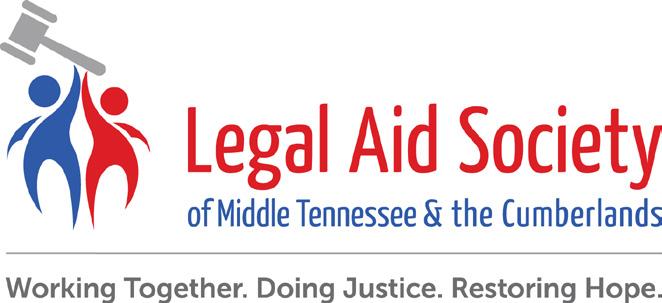
In good times and bad, the need for civil legal assistance for low-income members of our community is constant. At Legal Aid Society of Midde Tennessee and the Cumberlands (LAS), we receive more requests for help than our dedicated team of staff attorneys are able to handle.
Thankfully, through the Volunteer Lawyers Program (VLP)—Legal Aid Society’s partnership with pro bono attorneys in our community—the huge demand for our services becomes slightly more manageable. Through VLP, we are able to help our most vulnerable neighbors to secure financial stability, overall safety, and hope. We’re fortunate to have so many attorneys in our community who understand the importance of this work and feel a calling to help out.
Since becoming director of VLP last year, I’ve become increasingly aware of our constraints when it comes to finding and placing volunteer lawyers. Under our previous system, one of our staff members placed cases by reaching out individually to a specific attorney or law firm to gauge their interest in taking on a case—clearly a slow process.
We knew there had to be a faster, more easily accessible way of advertising these opportunities, but we didn’t know what it was. That’s when we had an “aha” moment—inspired by a conversation with a Florida Bar Association representative during a legal conference.
Modeled from the Florida Bar Foundation’s Pro Bono Partnerships Program, LAS launched its Pro Bono Matters catalog in January 2020. Given the current state of our world, it seems that the timing couldn’t have been more perfect.
Pro Bono Matters is an online portal that makes it easier than ever for lawyers to volunteer for a pro bono opportunity—all it takes is a few clicks. Cases are listed individually and provide a synopsis and short description of each opportunity. The site also offers a search option to narrow down the cases by geographic area, practice type, or other interest criteria.
If an attorney sees a case of interest, they can click on the “Interested?” button, then fill out a simple form to submit their name, email address, phone number, bar number, and comment (if applicable). From there, representatives at Legal Aid Society’s VLP will reach out to the attorney to provide more information, answer any questions, connect them with relevant resources, and move forward to place the matter if it is a good fit. There is also a button that allows attorneys to share a case with someone they think might be interested.
Since the launch of the Pro Bono Matters catalog, almost 170 opportunities have been posted for a range of cases, including bankruptcy, unemployment, landlord and tenant disputes, conservatorships, domestic violence, and more. We’re already uploading anywhere from 6 to 12 cases per week. As long as the case is not an emergency or does not necessitate a quick turnaround, it is likely to be posted. Cases such as orders of protection or housing evictions are typically referred directly
to an attorney or firm due to the short turnaround.
We’ve received interest for 30 of the cases posted since January, and 24 have resulted in an attorney taking the case. That’s an 80% conversion rate, which we consider pretty great in the first few months that the catalog has been live. This new technology that works 24/7/365 gives us a better opportunity to connect people who contact us for help, and ensures the cases we have are being seen.
Based on the positive feedback received so far, firms and attorneys seem to be receptive to the program. Our goal is to advertise and educate Middle Tennessee firms and attorneys for whom this tool could be useful, and to gain even more interest and engagement on the portal to help our neighbors in need. One way we are doing this is by sending a weekly email to a rotating list of attorneys and law firms that includes the Pro Bono Matters link so recipients can be updated on the number and types of cases that are currently on the site.
We’re delighted to introduce this tool to you, and can only hope that it sees the same success as it has in Florida, Oregon, and Washington. To see the case database, visit las.org/volunteer/pro-bono-matters. You may reach out to me directly at acrismon@las.org for more information on becoming a volunteer attorney for Legal Aid Society. n

ANDRAE CRISMON is the Volunteer Lawyers Program Director at Legal Aid Society of Middle TN and the Cumberlands. He is a graduate of MTSU and Vanderbilt Law School. He serves as past chair of the Rutherford-Cannon County Bar Association Public Service Committee.
bar BITES | Bill Ramsey
MAMA’S PIMENTO CHEESE
My mother, Ida Ramsey, was a wonderful cook. She lived in Viola, Tennessee, and learned her craft from the great cooks who lived there, too. She documented those recipes in the many cookbooks she authored. (The books are still selling today.) She died at age 91, but up until she got sick, she still made the best pimento cheese I have ever tasted. And it was simple. I want to share her simple, elegant recipe with you. I share her opinion—simple recipes are the best.
I watched her make it for several years, and I listened closely as she described her “theory” and her recipe for making good pimento cheese. She always used sharp cheddar, but she did not use the white sharp cheddar because people expect pimento cheese to have that beautiful orange color. She preferred to use homemade pickled pimentos canned by her friend Elizabeth Smartt, when available. (I can supply that recipe, too.) She chopped the pickled pimentos while holding them in the palm of her hand to make sure much of the liquid had drained off. She preferred to use her own homemade “dressing” or her homemade mayonnaise. (I can supply those recipes, too.) She would add a little white or apple cider vinegar, a little sugar, and some cayenne pepper to give the dressing a “zing.” She always cautioned me not to use too much dressing or mayo. The pimento cheese does not need to be too thin. It must be “chunky” for it to taste right. Let me know what you think! n
Ingredients
Mama’s Pimento Cheese
Yields 8 to 10 Sandwiches
• 1 lb - very sharp cheddar cheese; grate very coarsely (you can use hoop cheese, but it is not as good)
• 4 oz - pickled pimentos (well-drained); chop into small pieces (if you are lazy like me, you buy them already chopped)
• 1 cup - Miracle Whip or mayo; but not too much (if adventurous, homemade cooked dressing or mayo)
• 1/2 to 1 tsp - sugar
• 1 tsp - white or apple cider vinegar
• ground cayenne pepper to taste



Directions
1. Grate the cheddar cheese into a mixing bowl.
2. Combine the dressing of choice, the sugar, the vinegar, and the cayenne pepper in a small bowl or cup.
3. Put the mixture and chopped pimentos into the cheese and stir. (Be sure to only add enough of the dressing mixture to the cheese to form a chunky mixture, but not so much that it turns into a “spread.”)
4. If it does not have enough of a “bite,” add a little more cayenne pepper.
I hope you enjoy!

TENNESSEE CHAPTER





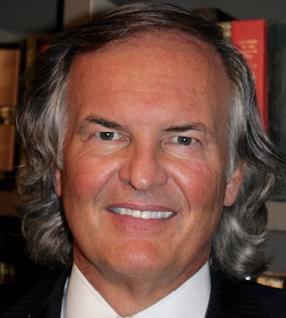




Gayle MALONE, Jr. (615) 651-6700 Dan NOLAN (931) 647-1501


Matt SWEENEY (615) 726-5774 John TARPLEY (615) 259-1366 Mark TRAVIS (931) 252-9123 Jack WADDEY, Jr. (615) 850-8752 David NOBLIT (423) 265-0214 Barry L. HOWARD (615) 256-1125
Gail ASHWORTH (615) 254-1877 John BLANKENSHIP (615) 627-9390 Paul DeHOFF (615) 631-9729 James KAY (615) 742-4800


RUSSELL (615) 815-0472 Mark LeVAN (615) 843-0308
Tracy SHAW (615) 921-5204


The NBA’s “Masked” | Summer 2020





The NBA’s “Masked” | Summer 2020

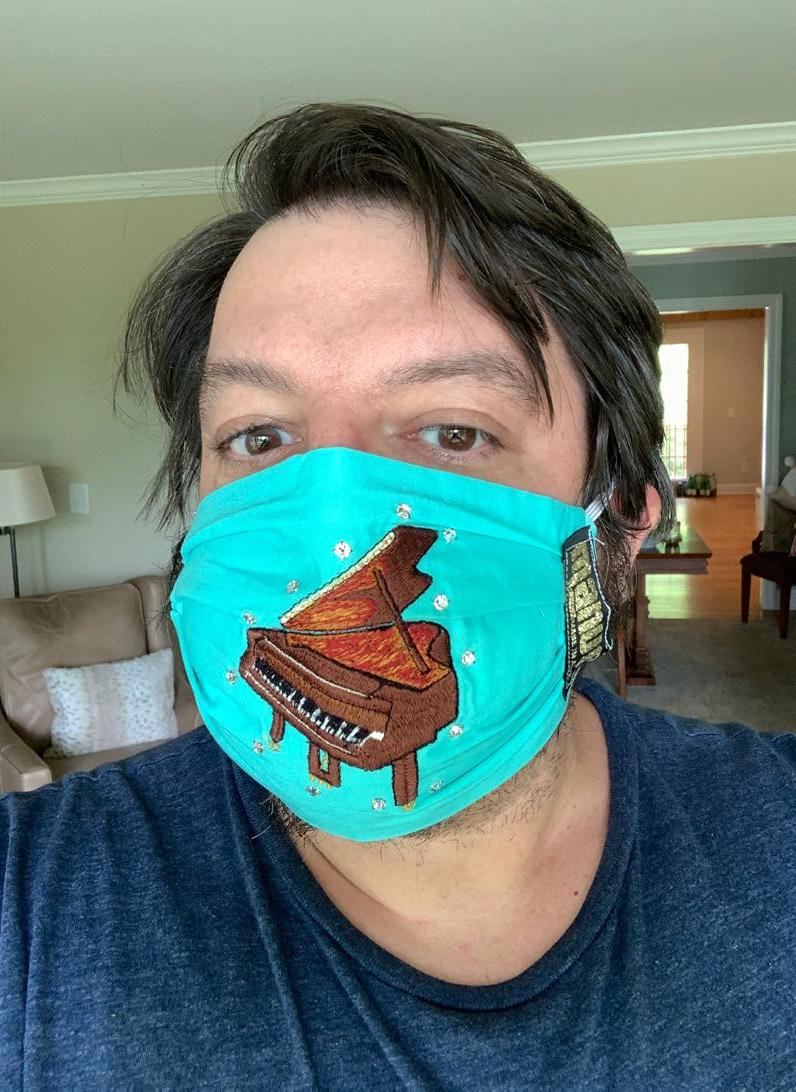



Hearsay | Honors &
HONORS & AWARDS

Wayne Beavers, shareholder at Patterson Intellectual Property Law, has been ranked by Chambers and Partners USA 2020 in intellectual property law for the state of Tennessee. Beavers has over 40 years of experience in the practice of intellectual property law and focuses his practice on the filing and prosecution of patents and on conducting complex patent freedom to operate and/or infringement reviews.

Dr. Tracey Carter has been selected for inclusion into The National Black Lawyers Top 100 Black Lawyers in Tennessee . Membership into the organization is by invitation only and is extended exclusively to attorneys who excel in their profession or promote diversity. Dr. Carter is an Associate Professor of Law and Director of Academic Success at Belmont College of Law.

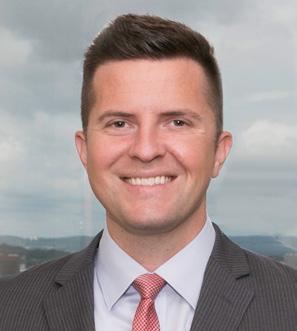
Lewis Thomason has named four attorneys in its Nashville office as shareholders. Brad Craig focuses his practice on general civil litigation defense, employment law, and education law in the Nashville office. Lucas Davidson practices in Tennessee and Kentucky with a specific emphasis on the defense of


cases in professional liability, healthcare liability, transportation and trucking, construction, personal injury litigation, and business disputes.
Andrew Grams practices in the areas of commercial transportation, property and casualty insurance defense, and real estate litigation. Jordan Scott represents doctors and lawyers, as well as other professionals and healthcare entities, who have been accused of malpractice.

Marlene Eskind Moses has been selected President of the International Academy of Family Lawyers (IAFL). IAFL is a worldwide association of practicing lawyers who are recognized by their peers as the most experienced and expert family law specialists in their respective countries; membership is by invitation. Moses is an internationally recognized family law expert and founding manager of MTR Family Law.

Greg Pease , a member at Sherrard Roe Voigt & Harbison, has been reappointed for his third term as Associate General Counsel of the Tennessee Bar Association’s Board of Governors. In this role, Pease advises the Board on corporate matters and serves under the General Counsel, Ed Lanquist.
Move,

Michael Russell has been elected as a Fellow of the College of Labor and Employment Lawyers. Russell is a mediator and arbitrator, and he serves as a neutral in cases throughout the US. He also teaches alternative dispute resolution at Belmont College of Law.

On June 1, 2020, James H. Tucker, Jr. became the first African American managing partner in Manier & Herod’s 106 year history. Tucker has been a partner with the firm since 2000 and has served on the firm’s Executive Committee since 2018. Since joining Manier & Herod, Tucker has focused his practice in workers’ compensation defense, holding leadership roles in many professional organizations related to his practice discipline including president of the Tennessee Defense Lawyers Association.
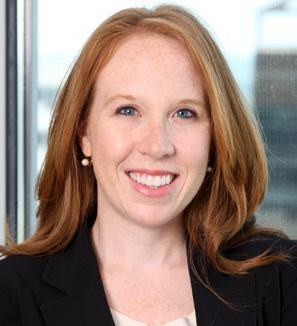
Mary Beth White , shareholder and chair of the transportation practice group at Lewis Thomason, has been inducted into the American College of Transportation Attorneys (ACTA). ACTA is a non-profit association consisting of a select group of experienced transportation defense lawyers who have joined to serve as a confidential, reliable, and supplemental legal resource to the trucking industry. White concentrates her practice in the areas of commercial
Hearsay | Honors
& Awards,
and business litigation with an emphasis on commercial transportation.
ON THE MOVE

Bill Purcell , the fifth mayor of Metropolitan Nashville and Davidson County, has joined Frost Brown Todd. He is serving as Counsel in the firm’s government services practice group. Purcell has practiced law in Nashville for more than 30 years and is both an experienced courtroom advocate and a trusted advisor to chief executive officers on their companies’ dealings with governments at all levels.
FIRM NEWS
Bass, Berry & Sims is 1 of 18 organizations across the country to earn the National Diversity Team Award issued by the Profiles in Diversity Journal . The recognition acknowledges organizations whose teams and individuals support and advance diversity and inclusion within their respective industries.


Dickinson Wright is pleased to announce that the firm has been recognized in this year’s The Legal 500 United States 2020 The practice area rankings include Dispute Resolution, General Commercial Dispute; Labor and Employment, Labor and Employment Disputes; Defense; M&A/Corporate and Commercial; Real


Estate, Construction. Additionally, four attorneys were recognized: Rob Dodson , Real Estate, Construction; Reid Estes , Labor and Employment, Labor and Employment Disputes; N. Courtney Hollins , Real Estate; and Slade Sevier , Real Estate, Construction.
Frost Brown Todd has earned the title “Gold Standard Law Firm” by the Women in Law Empowerment (WILEF), and is one of only 48 law firms in the US to receive this certification. WILEF awards the designation to a select number of law firms who meet specific requirements, including having a certain number of women as equity partners, in firm leadership positions, and in the ranks of their most highly compensated partners.
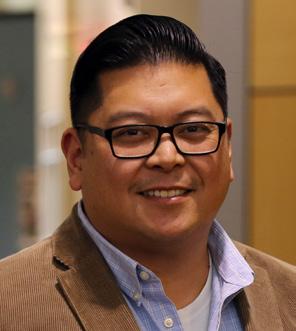

The Tennessee Asian Pacific American Bar Association announced its new officers and board members. President Chris Javillonar of Permobil Inc. and board member Julie Bhattacharya Peak of Liberty Mutual are both members of the NBA. n
LET’S WORK TOGETHER TO PROTECT YOUR CLIENTS’ INTELLECTUAL PROPERTY.
We are committed to protecting your clients’ IP assets, leaving you to focus on all other legal matters. Learn more at iplawgroup.com.

Thank You for Your Membership!
The NBA Premier Membership recognizes those members who desire to demonstrate the utmost in commitment and support to NBA programs and services. Contact Vicki.Shoulders@nashvillebar.org for information on how to become a Premier Member.
PREMIER MEMBERS
Gail Vaughn Ashworth
Laura Baker
William Ball
Carson Beck
Daniel Berexa
Michael Berman
Mark Beveridge
Hon. Joe Binkley
Hon. Melissa Blackburn
Jonathan Bobbitt
Charles Bone
C. Dewey Branstetter
Hon. Joe Brown
Kenny Byrd
Chris Cardwell
Loy Carney
Kay Caudle
Mark Chalos
Will Cheek
Christopher Coleman
Hon. Patsy Cottrell
John Day
Joy Day
Jackie Dixon
Blair Durham
Keith Frazier
Richard Green
John Griffin
Bill Harbison
Aubrey Harwell
Trey Harwell
Lisa Helton
Jamie Hollin
Paul Housch
Jan Jennings
Andrew Kaufman
Jordan Keller
John Kitch
Dean Bill Koch
Irwin Kuhn
Ed Lanquist
Tom Lawless
Will Lewis
Wendy Longmire
Christina Lopez
Hon. Randal Mashburn
Sam McAllester
Hon. Amanda McClendon
Nicholas McGregor
Bob Mendes
Margaret Moore
Marlene Moses
Hon. Patricia Head Moskal
Phil Newman
Marc Overlock
Matt Painter
David Parsons
Gregory Pease
Andrea Perry
Tracy Powell
Joseph Presley
George Preston
David Raybin
Sara Reynolds
Nathan Ridley
Christopher Sabis
Carolyn Schott
Joe Shelton
Kimberly Silvus
Martin Sir
Ron Small
Eric Smith
Laura Smith
Saul Solomon
John Spragens
Joycelyn Stevenson
Mike Stewart
Gerard Stranch
Jim Stranch
Hon. Aleta Trauger
Howard Vogel
Michael Wall
Liz Washko
Jim Weatherly
Tom White
Tom Wiseman
Talley Wood
Sheree Wright
Ed Yarbrough
Hon. Bill Young
Stephen Young
Gulam Zade
Stephen Zralek

The Affinity Program
EXCLUSIVE MEMBER SAVINGS ON LOCAL PRODUCTS & SERVICES!
The Affinity Program is made up of partnerships that foster a mutually beneficial relationship between the NBA, our members, and participating local businesses. To learn more, view member discounts, and get your NBA Membership card to present to vendors to receive your discount, visit NashvilleBar.org/AffinityProgram or email Vicki.Shoulders@nashvillebar.org today!



































Thank you for supporting your local bar association!
The Nashville Bar Association 100% Club is a special category of membership that demonstrates a commitment to the legal profession and our community from legal organizations with more than three attorneys that have 100% of their Nashville attorneys as members of the NBA. To become part of NBA’s 100% Club, contact Vicki.Shoulders@nashvillebar.org and support your local bar association today!
Adams & Reece
Anderson & Reynolds
Baker Donelson
Bone McAllester Norton
Bradley
Brewer, Krause, Brooks & Chastain
Burr & Forman
Butler Snow
Cameron Worley
Cole Law Group
Cornelius & Collins
Dickinson Wright
Dodson Parker Behm & Capparella
Evans, Jones & Reynolds
Fisher & Phillips
Frazer
Frost Brown Todd
Grissim & Hodges
GSRM Law
Hall Booth Smith
Healthcare Realty Trust, Inc.
Holton & Mayberry
Keller, Turner, Andrews & Ghanem
Kinnard, Clayton & Beveridge
Latitude
Law Offices of John Day
LBMC
Leader, Bulso & Nolan
Legal Aid Society
Leitner, Williams, Dooley & Napolitan
Lewis Thomason
Lieff, Cabraser, Heimann & Bernstein
Lindsey Amonette Nemer + Glassford
Martin Heller Potempa & Sheppard
Matt Hardin Law
McCarter & Beauchamp
Meridian Law
Morgan & Akins
MTR Family Law
Nashville Electric Service
Neal & Harwell
Nelson, Mullins, Riley & Scarborough
North, Pursell & Ramos
Ogletree Deakins
Ortale Kelley Law Firm
Parker, Lawrence, Cantrell & Smith
Patterson Intellectual Property Law
Pepper Law
Rainey, Kizer, Reviere & Bell
Raybin & Weissman
Riggs Davie
Riley, Warnock & Jacobson
Robinson, Reagan & Young
Rogers, Shea & Spanos
Rudy Winstead Turner
Schulman, LeRoy & Bennett
Shackelford, Bowen, McKinley & Norton
Sherrard Roe Voigt & Harbison
Sims|Funk
Smith Cashion & Orr
Smythe Huff & Murphy
Spicer Rudstrom
Stites & Harbison
Sutherland & Belk
Taylor, Pigue, Marchetti & Blair
Venick, Kuhn, Byassee, Austin & Rosen
Warner Music Group
Watkins & McNeilly
Weatherly, McNally & Dixon
White & Reasor
Wiseman Ashworth Law Group
Wood Stabell Law Group
Wyatt, Tarrant & Combs

The easiest way to accept credit, debit, and eCheck payments
The ability to accept payments online has become vital for all firms. When you need to get it right, trust LawPay's proven solution.
As the industry standard in legal payments, LawPay is the only payment solution vetted and approved by all 50 state bar associations, 60+ local and specialty bars, the ABA, and the ALA.
Developed specifically for the legal industry to ensure trust account compliance and deliver the most secure, PCI-compliant technology, LawPay is proud to be the preferred, long-term payment partner for more than 50,000 law firms.



No one wants to think about how life could change as the years pass. A well-funded portfolio doesn’t guarantee that you’ll be able to maintain your lifestyle as you age.
That’s why an Elder Care Protection Plan from Takacs McGinnis Elder Care Law is so valuable. It helps you—and your clients— answer questions that estate plans don’t address.
n How can I protect family wealth from the high costs of long-term care?
n How can I provide for my spouse or other dependents if I become incapacitated?
n How can I live independently at home for as long as possible?
n How can I avoid being a burden to my spouse or children as I age?
For more than 25 years, our Certified Elder Law Attorneys, elder care coordinators, and other professionals have been helping families protect assets, find high-quality care, and navigate the long-term care system.
We can help you and your clients, too.
Call Takacs McGinnis Elder Care Law today to learn more about how an Elder Care Protection Plan can help you. (615) 824-2571












